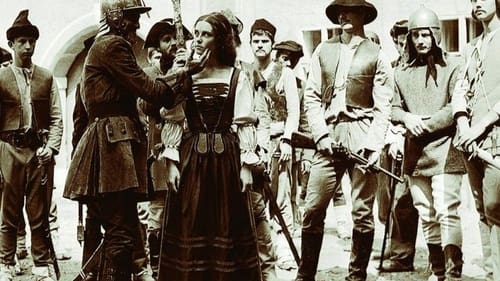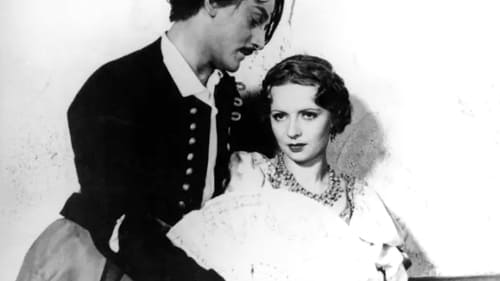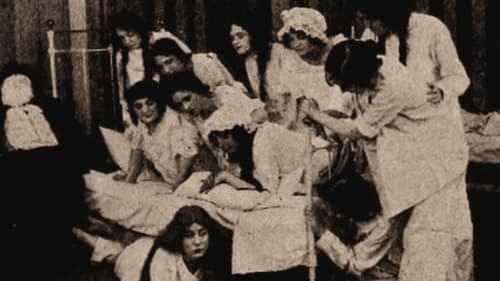Mór Jókai
出生 : 1825-02-18, Komárom, Kingdom of Hungary (now Komarno, Slovakia)
死亡 : 1904-05-05
略歴
Móric Jókay de Ásva (known as Mór Jókai; 18 February 1825 – 5 May 1904), outside Hungary also known as Maurus Jokai, was a Hungarian dramatist and novelist.
Description above from the Wikipedia article Mór Jókai, licensed under CC-BY-SA, full list of contributors on Wikipedia.

Novel

Writer
Szaffi is a full-length animated feature based on Jokai Mor's books Gypsy Baron (Cyganibaro) and Szaffi. It has adventure, and treasure, and love, and a little black cat, and a war, and picturesque villains - a governor with a pressure release valve in his skull and a fat pig-loving baron, and of course, the good gypsies.

Writer
The romantic story takes place in the time of Napoleon in Hungary, near Fertő-lake. Count Vavel hides here the French heiress from the revolution and Napoleon.

Writer

Writer

Novel

Novel

Original Story
In the Temesvar Province, a landowner returned from exile marries a gypsy girl who is revealed to be the daughter of a Turkish Pasha and the rightful owner of a hidden treasure. Next to "Die Fledermaus", DER ZIGEUNERBARON is Johann Strauss’s most popular operetta. The libretto gave Strauss the chance to revel in such contrasting musical forms as the Csárdás and the Viennese waltz. The style of the lied forms and ensembles is so original and finely balanced that the "Gypsy Baron" can truly be called a comic opera. Among the leading names of the stellar cast in this exuberant 1975 film of the operetta are Wolfgang Brendel, Ivan Rebroff, Janet Perry, Ellen Shade, Martha Mödl and, in the role that launched his career, Siegfried Jerusalem as Sándor Barinkay.

Novel
On the novel by Mór Jókai. The first half of the XVIII century. Several decades of life of a noble family Karpati.

Novel
On the novel by Mór Jókai. The first half of the XVIII century. Several decades of life of a noble family Karpati.

Novel
Based on the novel of Mór Jókai. During the Hungarian independence war 1848-49 mother and her three sons trying to leave the road precisely designated by their conservative, stone-hearted father. The way-seeking and rivalry of brothers, Jókai's masterpiece, the cast, delightful scenes give an unforgettable experience.

Writer
Joseph II, the enlightened Austro-Hungarian emperor, entrusts his loyal and confidential subject, Ráby Mátyás, formerly a treasurer, to examine the abuses made by the magistrates of Szentendre and Izbég. Following his old friend, Dacsó Marci's directions, Ráby reveals horrible robberies, tax evasions, frauds, and other illegal acts having been committed against the people.

Novel

Novel
The old, sickly Demeter Lapussa is a tyrant in the family. He forces his granddaughter, the beautiful Henriette, to marry baron Hátszegi, although the girl loves the penniless Vámhidy Szilárd. The two lovers attempt to commit suicide, then are torn away from each other.

Novel
Istvan Szőts’s short, Christmas-themed film starring József Bihari and Andor Ajtay, based on Mór Jókai’s novel of the same title. The premier of the film was in the Venice Film Festival in 1957, where it received recognition.

Writer

Novel
Az Aranyember (The Man of Gold) was based on a novel by Jokai, at one time Hungary's foremost storyteller. Set in the early 19th century, the story revolves around Timar (Ferenc Kiss), a ferryman on a Danish tugboat. Rescuing the daughter (Marisa Kormos) of a Turkish nobleman from a watery grave, Timar is rewarded with the girl's hand in marriage. Now rich beyond his wildest dreams, our hero finds he is unsatisfied; it seems he has never forgotten his true love, flower girl Noemi (Anna Fuzes). Timar is forced to suffer mightily until he is finally permitted a tender reunion with the girl of his dreams.

Novel
Az Uj Foldesur (The New Squire) was based on a novel by popular Hungarian author Maurice Jokal, whose many works had previously been largely ignored. After the wars of 1848, a retired Austrian army officer "returns to the soil" as a gentleman farmer in Hungary in the 1850s. The old campaigner is the father of two daughters: One of the girls comes to a sad end thanks to the malfeasances of a handsome spy, but the other has a happier fate when she falls in love with a Hungarian POW. The underlying theme is brotherhood, as the formerly warring Austrians and Hungarians at last find a common ground. Az Uj Foldesur was nearly twice as expensive as the average Hungarian film -- but at $40,000, its budget was a drop in the bucket compared to a typical Hollywood production.

Novel

Novel

Writer

Novel

Novel

Novel
Faithful to his word, Michael Tímar, captain of the St. Barbara, becomes the guardian of Kondya, daughter of a Turkish aristocrat on the run. Later, he weds the grateful young Turkish girl whom he saved from the waters of the Danube. While skillfully managing his wife's fortune, entrepreneur Tímar becomes an important wholesaler of wheat and exports his products to Brazil. But his marriage of convenience proves a failure. He is torn between the demands of bourgeois civilization, governed by money, and the ideal of freedom, consisting of living simply within nature. He then takes refuge by the side of the sweet Noemi on an island on the Danube.

Novel
A drama based on the novel by Mór Jókai.

Novel

Novel
After Count John Karpathy, belovedly known as the Nabob, falls ill while entertaining the peasants of his estate, his dissolute nephew and sole heir, Count Bela, comes home from Paris to acquire his inheritance. The Nabob recovers and, after hearing Bela's plan to squander the money, resolves not to give Bela anything while he lives.

Writer










